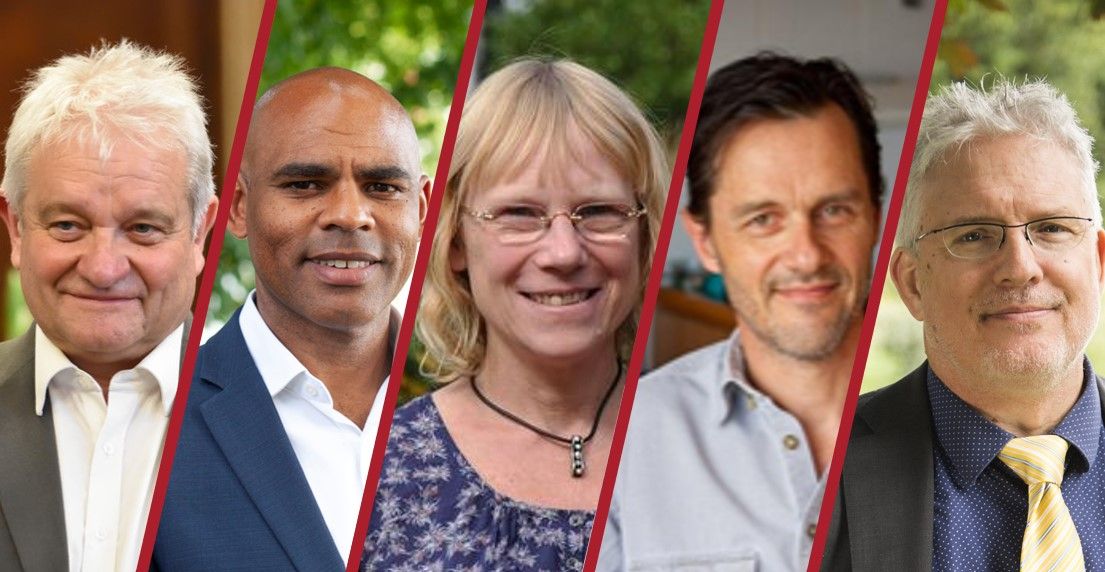By Edward Deacon, SciTech Digital Editor
On the 3 December, Bristol University hosted a panel discussion bringing together scientists and local politicians to discuss the challenges and responsibilities of the Government in communicating science to the public in the context of COVID-19 and considered the effect of misinformation on the perceptions of vaccines.
The event, ‘Life sciences in a post-truth world – A COVID-19 case study’ – celebrating the opening of the new Faculty of Life Sciences – saw Sarah Montague (Radio 4’s World at One presenter) host the online discussion held over Zoom with great poise to hear from each panellist.
Introducing the event, Vice-Chancellor Hugh Brady noted its timely nature saying, ‘life sciences have never been more important to our society’. Professor Jeremy Tavare, Dean of the Faculty of Life Sciences, commended the tremendous efforts of the roughly 150 University staff who came back to the university during the first lockdown, to start working on ways to understand and fight COVID-19.
In the opening statements, Marvin Rees, the Mayor of Bristol, stressed the focus on public perceptions that exists in politics and described current political debate as being ‘not a pursuit of truth’ but rather ‘a contest for controlling perceptions’, coming as a result of a ‘problematic dance between politics, journalism and social media.’
Mr Rees also suggested that the cynicism that exists in the public who view politicians as people who cannot be trusted, has had a negative impact on the ability of people to trust public institutions; particularly when their perceptions often come from what is presented in the media. As a result, work by public institutions and research by scientists is ‘undermined’, and this lack of trust represents a ‘real threat to democracy.’
The ‘stay at home, protect the NHS, save lives’ slogan was ‘very effective’ as it married scientific advice with a strong and clear message
The importance of effective communication between the Government and the public was stressed by Professor Stephan Lewandowsky (Chair in Cognitive Psychology at UoB and expert in the spread of myths and misinformation in society). He commended the ‘stay at home, protect the NHS, save lives’ slogan created by the government saying it was ‘very effective’ as it married scientific advice with a strong and clear message.
However, there are limitations to simple slogans like the ‘stay at home’ one employed by the government, Professor Lucy Yardley (Professor of Health Psychology, member of SAGE and expert in health behaviour change) pointed out. When lockdown restrictions were being eased, a similar simple message ‘wouldn’t work’. Instead, ‘more nuanced’ dialogue needs to be conveyed to the public as has been seen in countries like Sweden where such dialogue is ‘more common’ than in the UK.
Science is a ‘tricky subject’ and can be hard to communicate
Sir Paul Nurse (Chancellor of UoB, Nobel Prize-winning biologist and Director and Chief Executive of the Francis Crick Institute) stressed the necessity of needing a society where people are comfortable with science but recognised this can be challenging, as science is a ‘tricky subject’ and can be hard to communicate. However, this can be addressed if ‘scientists are honest about its limitations’. Citing the example of climate change, Prof Lewandowsky explains that people have come to more readily accept the reality of climate change when margins of error are presented.
On the matter of vaccinations for the public, Prof Lewandowsky pointed out how important it was to ‘paint a positive picture of how safe and tested they are, and how they will allow us to go back to normal’, being a ‘common good’ for the public. He also suggested that rather than trying to refute dissenters of vaccines, instead, focus should be put on those who are ‘susceptible to facts’. Non-believers are ‘not a particularly rewarding target market for communication’ so it is better to ‘inoculate the public against being mislead’ by the likes of conspiracy theorists.
Focus should be put on those who are ‘susceptible to facts’ ... it is better to ‘inoculate the public against being mislead’ by the likes of conspiracy theorists
Prof Lewandowsky argued that by clearly presenting the risk versus benefits of getting vaccinated is the best strategy for convincing people. Prof Yardley backed this point with the example of the swine flu vaccine. In a study, participants were informed clearly of the relative risk of not taking the vaccine and dying, versus the potential low risk of getting narcolepsy from the vaccine: a convincing strategy which people ‘completely took on board’.
Fortunately for those promoting vaccinations, conspiracy theory arguments are often incoherent. Prof Lewandowsky pointed out a common fallacy presented by dissenters that the virus is either a ‘hoax’ or ‘a biological weapon that was developed in China’ which are sometimes mentioned in the same arguments. The discrepancy and lack of continuity in such arguments against the existence or nature of the pandemic makes them weak, and it is possible to ‘teach the public to recognise incoherence’ and ‘give them the skills so they can decide who they trust’.
As for the role of politicians, making the vaccine the ‘socially acceptable and done thing’ will be the ‘politicians’ contribution’ Bristol West MP Thangam Debbonaire added. ‘We won’t be trusted if we start talking about the science.’ This is something Sir Nurse addressed by making the point that the Department of Health and Social Care should be more transparent in its working ‘than has been the case’ as this will increase trust in what politicians are saying if the public can understand what they are being briefed on.
A common fallacy presented by dissenters that the virus is either a ‘hoax’ or ‘a biological weapon that was developed in China’
When faced with the question of whether we should be concerned about those who will refuse a vaccine, Professor Adam Finn (Professor of Paediatrics, Chair of Bristol’s COVID-19 Emergency Research Group and expert on vaccination) confidently answered that we should not be worried since a strong public confidence and trust in the NHS exists: the very body that will administer vaccines to the public. He pointed out that ‘we don’t need to compel people to have vaccines as they already have vaccines’ previously delivered by the NHS. Public confidence is great enough that we shouldn’t be ‘imagining we will need to push people’ into having the vaccine.
The by now platitudinous question of when things will return to normal was considered by Prof Yardley who said that gradually over spring, ‘we will start seeing progress in the right direction’ in returning to normality which will be ‘really fantastic’. Mr Rees added that ‘we need to take our minds to the social conditions too’, reminding viewers that issues other than the pandemic are at play: ‘Yes, the virus is a threat to health, but so is inequality, so is poverty, so is joblessness and a loss of hope.’
Young people's anxiety levels near doubled during first COVID-19 lockdown
Bristol researchers lead new study into perceptions surrounding COVID-19, vaccines and lockdown compliance
Great confidence in the vaccines was expressed by the panellists, and even the concerns about whether mutations of COVID-19 could be a threat to the efficacy of vaccines were quenched by Prof Hill. The mutation of the virus has not led to it being ‘immunologically different to the point that vaccines need to be redesigned’ he explained, though it does possess the potential to do so, ‘as is done with flu vaccines each year – we have solutions if that happens.’
The overarching feeling from the discussion was that we should not worry about the naysayers and anti-vaxxers. As Prof Hill pointed out, ‘most people make their decisions by looking sideways’ and given the vast majority of the public will readily accept a vaccine, this could well turn the heads of doubters.
The roll-out of vaccinations across the UK and continuing of public health measures set out by the government will continue to raise questions and doubts, but it is clear if the right strategies are employed, the right messages can get across to the public, and trust in public institutions can be steadfast. However, it is important to ask questions of those bodies that represent and serve us, which is where transparency in decision and policy making is critical in the ‘technocratic age’ we live in, as put by Sir Nurse.
Featured Image: University of Bristol
Watch the recording of the panel event here.








